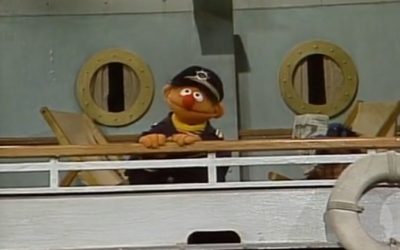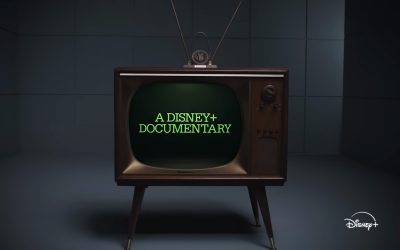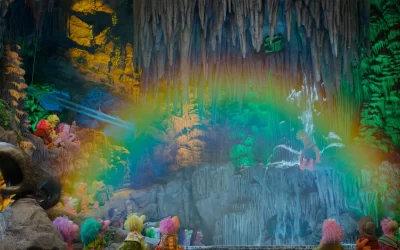Part 1 – Part 2
 I hope you all bought this semester’s required reading, Street Gang by Michael Davis. If you haven’t there’s still time before I give you a big fat F. And if you have, then you probably have some questions for author Michael Davis (aside from his recommended questions for book clubs). Well, you’re in luck, because we at ToughPigs had the unique opportunity to speak to Mr. Davis and ask all of those pesky questions that have been keeping you awake during nap time.
I hope you all bought this semester’s required reading, Street Gang by Michael Davis. If you haven’t there’s still time before I give you a big fat F. And if you have, then you probably have some questions for author Michael Davis (aside from his recommended questions for book clubs). Well, you’re in luck, because we at ToughPigs had the unique opportunity to speak to Mr. Davis and ask all of those pesky questions that have been keeping you awake during nap time.
And just a reminder, Davis will be moderating a panel discussion this Friday, January 30, at William Patterson University in Wayne, New Jersey celebrating the 40th anniversary of Sesame Street. Panelists include a few folks you may have heard of: Frank Oz, Kevin Clash, Caroll Spinney, Sonia Manzano, Bob McGrath, Marty Robinson, Fran Brill, David Rudman, and Tony Geiss. The event will also have a special showcase celebrating the life of Richard Hunt. The ToughPigs will also be in attendance (not on stage, unfortunately), so keep an eye out for us and feel free to say hello! Click here for more info on the event.
Special thanks to Michael Davis for being supercool and making the time to chat with us. Take it away, interview!
ToughPigs: I’m sure all of our readers on ToughPigs are jealous over just about every person you got to interview for the book. Some of the more notable names, like Judy Collins, James Earl Jones, James Taylor, how were you able to get those interviews just to talk about one specific subject with them?

Michael Davis: I started with a polite letter explaining my purpose, and in some cases I had to give them a bracketed amount of time like, “I have to talk to you sometime this spring.” I do think that in most cases, publicists were very helpful. Having a contract with Viking definitely opened doors. And I would also just say please and thank you. What I found was, in every case, every case, people opened up tremendously about the show, about their experiences. They wanted to contribute to this book, wanted to share their stories. Judy Collins, goodness gracious, she talked about her battle with alcoholism. She said Jon Stone gave her a reason to live. James Taylor gave us that wonderful riff about how Sesame Street prepares children for the real world and doesn’t wrap it in cellophane. They all felt kind of a sense of duty to tell their story, their experience with everybody. And even those who sadly didn’t get into the book, I wanted to keep the book to less than 400 pages, there are a lot of wonderful people who gave me their time and with the website, over time, present their stories. Norah Jones is one of them; she was fabulous. So many of the celebrity guests had great stories to tell. More than you can capture in a book. There’s a tremendous sense of pride that celebrities have for being on Sesame Street. They feel honored. Some of them approached rather gingerly, like Johnny Cash. He really did say, “May I please come with my son?” And they said, “Of course! Will you sing?” So I didn’t have that many barriers to cross with people once they knew that I had a contract and this was something real, and I know that a lot of celebrities called the Workshop to ask if I had their blessing. Then I sent thank you notes right away, I sent them progress reports about the book, I tried to keep a line of communication open with everybody.
TP: Likewise, you were able to talk to a lot of family members like the Hunts and Raposos. Was there any hesitation in asking them on your part, or were they already open to talking about their family?
MD: There wasn’t any hesitation on my part, because what I tried to do was to learn as much as I could before approaching them, so I wasn’t going in there and asking vague questions. I came to them with specific questions about their dad or their husband. Some people expressed a little bit of hesitancy, and just like the celebrities, some of them called the Workshop to check on me, but I have to say, they were incredibly helpful, forthcoming, the interviews took on a kind-of intimacy, we cried a lot, we laughed a lot. I took my wife Debra with me on a lot of them, and she was another set of eyes and ears for me. She picked up on a lot of things that, because I’m male, I would not have picked up on them. So it was really like having another reporter there, and because she came with me, she got to be in the presence of these great people.
TP: Who were some of the more fun or interesting interviewees you got to speak with?

MD: We’ve already talked about him, but I’ll mention him again. I’m such a big James Taylor fan. I think he is one of the great singer-songwriters in history. I think he is to our time what Stephen Foster was to previous times. Also right at the tippity top was Bernie Brillstein.
TP: It’s so great that you got to meet him before his unfortunate passing.
MD: For me, he’s the real deal, and I was honored to be in his presence. His office could have been an airplane hangar. It was the biggest office in Beverly Hills that I have ever seen. He was this big, rotund man behind a desk you could land a helicopter on. Photographs and posters on the wall of all of his successes. In his career, if he did only what he did for Saturday Night Live, that would be career enough for most people, but Bernie did so much more. There was no hiding his love for Jim, and he cried a lot in that interview. And I think he felt, until his dying day, a tremendous regret for not being on top of what was happening on the week that Jim died. It tortured him. I know that they weren’t separated by age in that many years, but he took on a more paternal role with Jim as his son, and I really do think that Jim’s death was not unlike when a parent loses a child. And I put that interview right at the top, because it was so moving and so real and so funny. If there was a Mount Rushmore of comedy, I would put Bernie there.
Jerry Nelson, what a great man. I told Jerry when I met him, “You’re a Beatle!” For people who love The Muppet Show, he’s it! Dave Goelz, I flew out to California to be with him, and it was one of the very best days of the project. He’s an astounding person.

TP: Dave Goelz only worked on Sesame Street a couple of times…
MD: That interview was more about Jim and that ensemble. But it was really worth it. And you could see how they were a band of brothers. I’m very fond of Fran Brill. She gave me so much, just a great interview. Stephanie D’Abruzzo, who I think is one of the funniest women I’ve ever heard. These people are to be celebrated for their talent, for their virtuosity. And because they work with puppets, in some people’s eyes they’re seen only as “children’s performers”. They’re satirists, is what they are. I have such an appreciation for their talent, for their imagination, their bond. That we all could work in such an environment, wouldn’t life be so much better?
And then I would have to say, meeting Grover was very emotional. I was on set for a taping, and I just think it’s uncanny how an artist has channeled Frank’s characters like Eric Jacobson. It’s not just a representation. It’s almost eerie how great he is. So, there I am in the studio, and there’s Grover messing up Fat Blue’s order again. And Jerry Nelson was there, voicing Fat Blue but not performing him, and it gets done and everyone on the floor gives Jerry a standing ovation. All the carpenters and technicians, Frankie Biondo on camera. We’re all wiping away tears, because he’s Jerry! And they begin to clear away things, and Eric is still on stage with Grover, so I begin to very gingerly walk forward. Now, I’d been on this project already for four years, and this wasn’t the first time I’d seen the puppets in action, it was the first time I’d seen Grover in action. I’ve been with Elmo and Bird a bunch of times, but there’s something incredible about being in Grover’s space. I know that he’s my favorite of the Muppet characters, and I believe that Grover is of special interest to second-born children. We had that thing happen that happens to a lot of people with the Muppets, you buy into it. You drop your sense of disbelief and you’re in the moment with the character, and the puppeteer drops away, Eric wasn’t there, and we had a conversation.
TP: What did you talk about?

MD: Television. (In a Grover voice) “Tell me about TV Guide!” (note: Michael Davis is a former editor for TV Guide) I asked him some questions about being a waiter. He said some really funny things, but I didn’t have my tape recorder. He said “What I really want to do is act.” (Laughs) So, here’s my view about Grover. Grover, of all of the Sesame Muppets, is the greatest teacher. If you look at the clips, those stick in the heads of kids. Some of the characters might be hard to get, especially with the complicated characters like Forgetful Jones, but Grover, because he’s so direct and so earnest, and because he wants so much for you to know what he knows, he’s a great teacher. And of course, he’s an extension of Frank. And I can’t tell you how great Frank was to me in the five years of making this book. I just count it as one of the most fortunate things that’s ever happened to me. I shared with him what I learned over the course of the project, because I felt that he above everyone would tell me the truth and tell me if I was off course or if I had something really, really wrong. Not only about Jim, but about the whole deal of the studio, the early years, the characters, where they came from, the motivation. There’s a bluntness about him, he can be very direct. I shared a lot with him and he was great, providing me with a lot of the feedback I needed. So I owe him a huge debt. And if I sweated anything about the book, I sweated, “Will Frank respect this book?” If I wanted to reach anyone’s standards, I wanted to reach Frank’s standards.
TP: Was there anyone you tried to contact that you couldn’t meet for an interview?
MD: No. The only people I wanted to talk to who I couldn’t are no longer on the planet. There were so many days when I’d say, “Oh Jeff Moss, I need to talk to you!” Actually, I have to correct myself. Michael Eisner didn’t talk to me. I tried very, very hard in writing, phone calls, I know his speech writer very well who helped me make an appeal to him. I come from the school of journalism that says you don’t try to take a whack at somebody without giving them the opportunity to hear what you have to say and respond to it. I tried everything to get his attention and to get him to consider it. And after he said no, I tried to change his mind, I didn’t take no for an answer. I kept going back to him saying, “Would you please reconsider? Would you accept ten typed questions, written by me, faxed to you?” So I regret that he didn’t talk. It’s easy to criticize him, and he was a punching bag for a lot of people. I didn’t want to be part of that punching bag brigade. I presented what I believe to be a true, factual story about the tug-of-war between Eisner and Jim and Joan Cooney, but it would have been so good to have his voice in the story. All that being said, I don’t harbor any bad feeling for Eisner, and I would still love to talk to him. If he called me tomorrow and said, “Alright, I read your book and I want to talk to you,” I’d tell him that his words would be in the second printing of the book or the paperback version, and I still hold out hope that he will.
TP: If I meet him, I’ll let him know.
MD: (Laughs) Please.
 Click here for part two of our chat with Michael Davis where you’ll hear about the audio book, Abby Cadabby, and the Holy Grail that is Jon Stone’s memoirs.
Click here for part two of our chat with Michael Davis where you’ll hear about the audio book, Abby Cadabby, and the Holy Grail that is Jon Stone’s memoirs.
Click here to visit the Mount Rushmore of Comedy on the ToughPigs forum!



